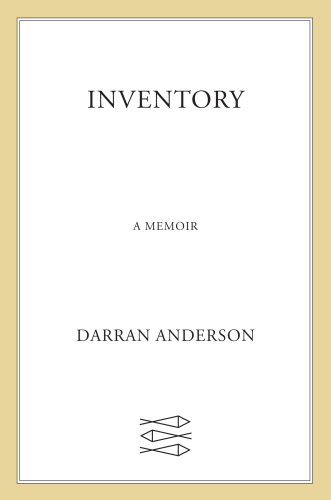
Inventory
A Memoir
کتاب های مرتبط
- اطلاعات
- نقد و بررسی
- دیدگاه کاربران
نقد و بررسی

March 30, 2020
Poverty, suicide, and Northern Ireland’s sectarian bloodshed shadow this bleak coming-of-age saga as Anderson (Imaginary Cities) recalls growing up in the 1980s and ’90s in a Catholic neighborhood in Derry, site of the 1972 Bloody Sunday massacre of 14 protesters by British soldiers. It’s a tense, atmospheric study of life in a war zone: gunfire echoed at night, killing innocents; IRA and Loyalist paramilitaries targeted each other—and suspect civilians—with bombings and shootings; Anderson and his pals dodged army patrols (while the patrols dodged snipers), endured humiliations at checkpoints and faced vicious beatings if they strayed into the wrong street. He also recounts his equally conflicted family history, including his maternal grandfather’s domestic violence, his father’s boyhood in a squatter camp and stint in the IRA, and his relatives’ propensity for drowning, sometimes intentionally, in the River Foyle, a murky, mysterious presence threading through his vivid cityscape of Derry. Anderson’s evocative prose takes disasters in stride while measuring their toll with restrained lyricism. (“ll the things they’d owned... were just smoldering ash and debris, charred imitations of what they had once been, in rooms with no roof, under a sky innocent in its ignorance,” he writes of an anti-Catholic arson.) The result is a grim but engrossing frontline take on the Troubles.

May 15, 2020
An Irish journalist's memoir of his complicated years growing up in Derry, Northern Ireland, in the 1970s and '80s--and the inevitable family of ghosts and victims. In intimate, beautifully allusive vignettes, Anderson guides readers through his youth, when he was beleaguered by the perpetual violence within his Catholic working-class neighborhood. Despite the turmoil, the author effectively captures moments of charm in the early years--e.g., when he discovered the mysteries of radio, which is all the family had until TV arrived in the '80s. He also conveys his admiration for his bodybuilding, blues-loving father, whose job as a gardener and groundskeeper in the local cemetery was misunderstood at the author's school, where he was considered a "gravedigger." Gradually, the innocent depictions grow more extreme. As conditions between the British and Irish continued to deteriorate--the military had the ability to spy on the locals via radio, and there were frequent bomb scares and armed checkpoints--Anderson felt the peer pressure to act out more outrageously and to partake in the panacea of choice, alcohol. Then the author breaks the narrative into "Da's Folks" and "Ma's Folks." The former delineates grandfather Joseph's humiliating legacy of desertion from the British army during World War II and later self-drowning in 1963 (his wife followed him into the river some years later). In "Ma's Folks," Anderson explores the life of his maternal grandfather, Anthony, a navy man who, though pro-British, "changed his smuggling habits" when the Germans occupied Ireland. Simmering violence bubbles underneath the entire text, often boiling over, and Anderson ably plumbs the salvatory theme of how his peaceable father, despite his mysterious past, helped break the cycle of violence for his son. Though different in mood and tone, this thoughtful memoir will appeal to readers of Patrick Radden Keefe's Say Nothing, among other chronicles of the Troubles. An impressively pensive, impressionistic work from an attentive writer.
COPYRIGHT(2020) Kirkus Reviews, ALL RIGHTS RESERVED.

July 1, 2020
As with his previous work, Imaginary Cities, Anderson's personal and generational memoir eschews a straightforward narrative for a freer form of nonfiction. Each chapter uses a mundane object--a bird's egg, fences, empty bottles--as pinpoints for reveries on his own working-class youth in Derry, Ireland, and the lives of his parents and grandparents, available to him only through stray photos and carefully edited family stories. Ever-present in both foreground and background is the Northern Ireland conflict and its effects, with the titular chapter simply presenting a six-page prose list of incidents of violence during the Troubles: kidnappings, bombings, murders; injuries and deaths, both deliberate and accidental; along with victims, whether military, paramilitary, or civilian. The effects of this sustained environment of conflict take their toll on each generation of the family, with depression, addiction, and suicide making appearances--but most grim is the culture of near-impermeable silence Anderson finds surrounding the tragedies of both family and country. VERDICT A poetic and brutal reflection on the ways the unspoken past haunts the present, the construction of histories from fragments and secrets, and the physical, mental, and emotional traumas that result when violence becomes part of the daily landscape.--Kathleen McCallister, William & Mary Libs., Williamsburg, VA
Copyright 2020 Library Journal, LLC Used with permission.

























دیدگاه کاربران